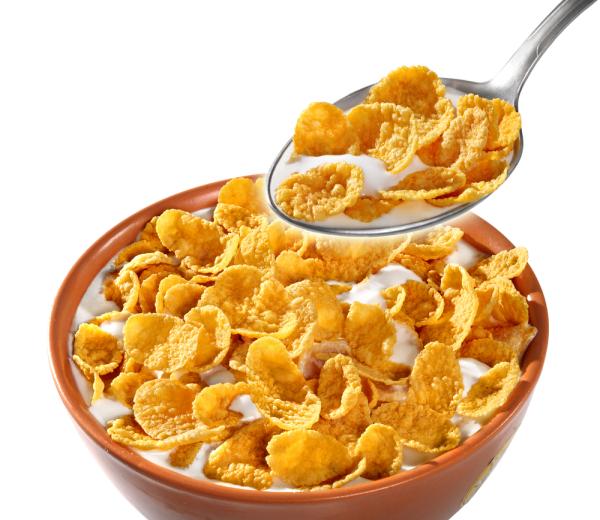Amid all the sobering reports, and studies, and analyses released each week about health and nutrition, every now and then it's nice to come across a story that's just light-hearted and fun. That's the case with a recent article focusing on the popularity ... of all things ... breakfast cereal.
Fortified with breezy consumer-choice data and chock-filled with nostalgia, "The best cereals of all time, ranked" by Vox's Zachary Crockett is an enjoyable read that takes a look at cereal consumption over the 20th century while revealing the brands that have been the most beloved.
Yet despite learning that more than a half-million people narrowly determined Quisp (remember that one?) to be the best cereal ever made, readers also learned a few other things: (1) cereal's heyday was roughly 40 years ago; (2) older cereals, some ancient, sit atop the list of 100 ; (3) and present-day concerns about nutrition and convenience are driving the younger set away from making cereal their primary breakfast choice.
From a highly-unscientific poll (but a fun one, nonetheless, so take a look here) conducted on MrBreakfast.com, where visitors could vote for their favorite bowl-filler, here are the Top-10 All-Time favorites:
- 1. Quisp
- 2. Frosted Flakes
- 3. Cinnamon Toast Crunch
- 4. Honey Nut Cheerios
- 5. Cap'n Crunch
- 6. Wheaties
- 7. Concentrate
- 8. Fortified Oat Flakes
- 9. Puffa Puffa Rice
- 10. Rice Krinkles
The difference between No. 1 (5,551) and No. 10 (5,051) amounted to just 500 votes, so there was no runaway winner. But the overall takeaway is that while corn-based Quisp -- marketed as "the vitamin-powered sugary cereal for QUAZY energy" -- was only sold for about a decade before it was pulled from supermarket shelves in the 1970s, it and four other brands in the Top 10 -- Frosted Flakes (1952), Honey Nut Cheerios (1979), Cap'n Crunch (1963), Wheaties (1924) -- were introduced more than 35 years ago.
What also quickly emerges is the realization that this online poll is most likely driven by older folks (and their fond, breakfast-table memories), and that youngsters and millennials are not well represented, mostly because they couldn't give a Graham. But aside from this playful poll, there's a pronounced trend of sliding sales for the better part of the last 15 years.
In 2000, breakfast cereal sales reportedly totaled $13.9 billion, before tastes began changing. "Sales of cold and hot cereals combined are expected to total $10.6 billion this year, down 17% from $12.7 billion in 2009, the research firm IBISWorld estimates," the Los Angeles Times and Chicago Tribune reported this week. Making matters worse, "[the] firm also sees sales hardly budging for the next few years and totaling $10.4 billion in 2020."
A big reason for the decline is that for the most part, young adults (and in the case of young children, their parents) perceive cereal to be overly processed and not very healthy.
For instance, Kellogg, the industry's leading producer along with General Mills (each company has roughly 23 percent market share), is launching a new campaign to reintroduce one of its best-known cereals, and its iconic mascot, to kids and their parents.
"Kellogg faces an uphill battle in trying to make Frosted Flakes relevant again," Bloomberg.com reported last month. "The company is mired in an industrywide slump for the one-time breakfast favorite, now perceived as too processed and sugary. The new lifesize Tony the Tiger ... will have a prominent role in a new social-media marketing campaign."
Cereal makers are also reformulating their products in response to consumers seeking more nutrients, less salt, sugar and artificial ingredients, and greater transparency in production.
"Kellogg recently rolled out two new versions of its mainstay Raisin Bran that include clusters of granola," the Tribune reported. "General Mills introduced Tiny Toast that’s flavored with real strawberries and blueberries and contains no artificial colors or sweeteners." Meanwhile, making cereal-eating more attractive at breakfast is another industry concern. "The desire for convenience seems to be especially pronounced among millennials, the generation aged 18 to 34. When [market research group] Mintel surveyed consumers about cereal a year ago, 39% of millennials said cereal was inconvenient because you have to clean a dish afterward."
Clearly, this isn't the first time the packaged food industry has had to contend with shifting tastes and calls for healthier products. So that's nothing new. But if milk, and the relative mess it creates, remains an essential ingredient in cereal consumption, manufacturers seeking to create an easier meal may have their hands full trying to come up with a convenient, liquid-less alternative.




